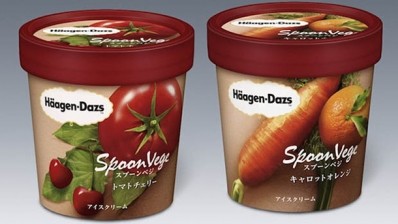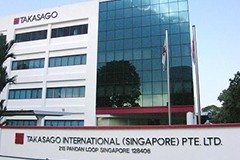Southeast Asia
Vietnamese flavours company takes on big boys in its own backyard

With the likes of Firmenich opening up a China headquarters last year, and Givaudan announcing a joint-venture with Zhejiang Xinhua at around the same time, these companies might have a presence in the region, but they haven’t gone all-in to deliver their might to a burgeoning market, said Dean Anthony of Golden Frog, an up-and-coming Vietnamese player with a global perspective.
“Every major flavour house has a footprint in every major city in Asia—they have to be here now to be competitive,” Anthony told FoodNavigator Asia. “But they don’t get into details; they adopt a take-it-or-leave approach without customising too much unless the potential is enough to make it viable for them.”
Economies of scale
So where does that leave smaller, indigenous companies like Golden Frog as they set out to grow in the midst of big-name competition, not least when the top 10 multinationals control around 99.9% of the global market?
“We have to make it viable for us and our customers, so in order for us to compete, we have to be as good, if not better. And it takes a lot of convincing to get a customer to change horses mid-stream.
“We ask our potential customers to consider us when they are going to launch something new, and we take them to our application labs to learn more about flavours. Asian players with a food technology background will have had some exposure to the chemistry that goes on behind a great flavour, but they wouldn’t know it at a very detailed level.”
Anthony says flavour and aroma innovation is central to Golden Frog’s operations in a region where developing new processes and devising novel directions is frowned upon.
“For cultural and historic reasons, to innovate might imply losing face because it’s a trial-and-error process, so there’s a lot of emulation and imitation [in Asia-Pacific],” he revealed.
“Our idea has been to create an environment with technology whereby individuals would rise to the occasion by making mistakes. There isn’t a right answer; we would find it as we worked along, and we tell our R&D team that the journey is more important than the destination.”
Local production
Golden Frog sources its raw materials locally and processes them at its own plant, rather than relying on expensive materials and technology from the West. Instead of specialising in one particular area, the company has invested in a broad spectrum of treatments, from spray drying and vacuum drying to distillation and vacuum distillation.
“I think we are in a unique position as we are pulled into many different types of manufacturing as a flavour and fragrance company, and that gives us a very interesting position to be in,” continued Anthony.
“For example, if you are a company that makes coffee flavours, you have to take the coffee beans from Brazil or Vietnam to the West to process them, and that can be expensive.
“It’s about cutting out the middle man—standard MBA practice—to get around the supplier, and we do this by farming our raw materials. We have our distillation facilities right on our farms. That would be difficult to duplicate for other environments where, for example, the raw materials are not grown.”
Anthony says it is highly unusual to see new players entering the flavour and fragrance industry because the investment can be staggering.
This is especially so in Asia-Pacific because of its many barriers to entry, such as corruption, cultural differences—challenges to be met that technology just cannot solve.
“But with enough patience and tenacity, we can navigate through that. There are some serious challenges, some beyond our control: drought, civil unrest, this year the orange harvest was harmed.
“One thing I can say is that, no matter what happens in the world, people have to eat three times a day, so there will always be a market for flavours and aromas, and it is our job to work with local food companies to source and develop them efficiently.”











